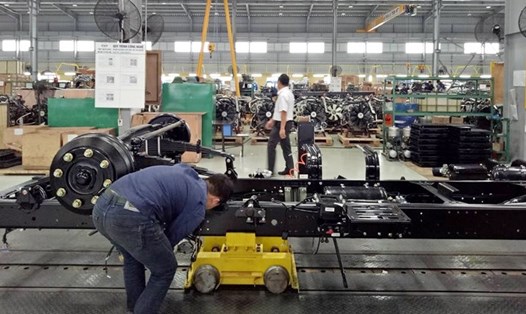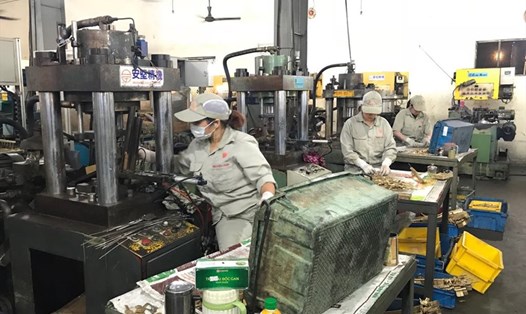According to the December 2018 report of the Vietnam Maritime Administration, the output of goods transported by sea in 2018 accounted for only 5.2%, inland waterway accounted for 17.1%, rail transported by rail 0.4% and road transport still accounted for the majority of the proportion of goods transported at 77.2% with the cost much higher than sea transportation (more than 6.5 times higher when transporting containers).
In 2018, the maritime industry transported over 524 million tons of goods through seaports, an increase of 19% over the same period. It is forecasted that in the coming years, the annual growth rate of goods through seaports will be 12 -16% and by 2030 will reach 1.5 - 2 times higher than today.
The Vietnamese fleet currently has 1,593 ships with a total weight of 7.8 million tons, however, the fleet structure is not reasonable (69% of bulk cargo ships, 9% bulk cargo ships, 3.3% container ships, 15% oil tankers and 3.3% other ships), high age of ships, low quality of ships and limited management and exploitation skills. Therefore, the need to add new ships to the Vietnamese fleet to meet the requirements of sea transportation is extremely urgent.
According to a representative of SBIC Shipbuilding Company, the shipbuilding industry plays an important role in providing vehicles and technical equipment for the transportation of goods and passengers by sea/river, defense industry, oil and gas and seafood industry. However, this industry still faces many difficulties.
"Due to the impact of the world's shipbuilding mechanical industry crisis in recent years and many other reasons, the Shipbuilding Industry Corporation - SBIC (accounting for about 70% of Vietnam's shipbuilding capacity) has encountered many limited difficulties, lost its ability to pay and is currently implementing a comprehensive restructuring under the direction of the Politburo, the Government and the Ministry of Transport from 2010 to present," said the enterprise.
Member shipbuilders currently have almost no major customers because domestic shipping companies are also facing many difficulties in competition as well as finding capital to invest in expanding their fleets. The annual employment fund of units is gradually decreasing and cannot promote the capacity of infrastructure that has been invested heavily in in previous years
Shipbuilders are also facing financial difficulties because large investment debts at banks have not been restructured; Bank loans for production are almost impossible, and long-term investment loans are even more difficult. The Corporation and its units cannot open procedures to guarantee the performance of contracts according to international practice with commercial shipbuilding contracts for foreign ship owners.
Many experts, designers and technical staff, and skilled workers have also left the Corporation due to the large decrease in the number of export ships built, the annual continuous decrease in employment fund; The capacity to manage and organize production and economic management in most shipyards still does not meet requirements.
From here, Mr. Dong proposed that the state should have appropriate mechanisms and policies to promptly support the restructuring process of the Shipbuilding Industry Corporation (SBIC) as the core to maintain and develop the new shipbuilding and repair industry. Use factories and projects with suitable infrastructure to continue investing in combination with developing and modernizing the Vietnamese fleet.
Adjust the Transport strategy according to the roadmap, enhance the ability to transport by sea, inland waterway, logistics services to create a synchronous, comprehensive and efficient transportation system.
Regarding financial investment, there should be a policy to restructure loans arising in the previous period of SBIC according to the Project to continue restructuring Vietnam Shipbuilding Industry Group approved by the Government.
The State plays the role of a major buyer, a consumer of large shipping products or a policy to support large ship owners such as Vinalines in developing modern fleets, supporting output for shipbuilders, contributing to the development of domestic waterway transport and competing with large shipping lines in the world.
At the same time, there are preferential policies on mobile loans for shipbuilders, guarantees for the implementation of contracts with foreign ship owners for products that are considered effective, creating conditions for businesses to do well in the market, accessing international commercial products.







